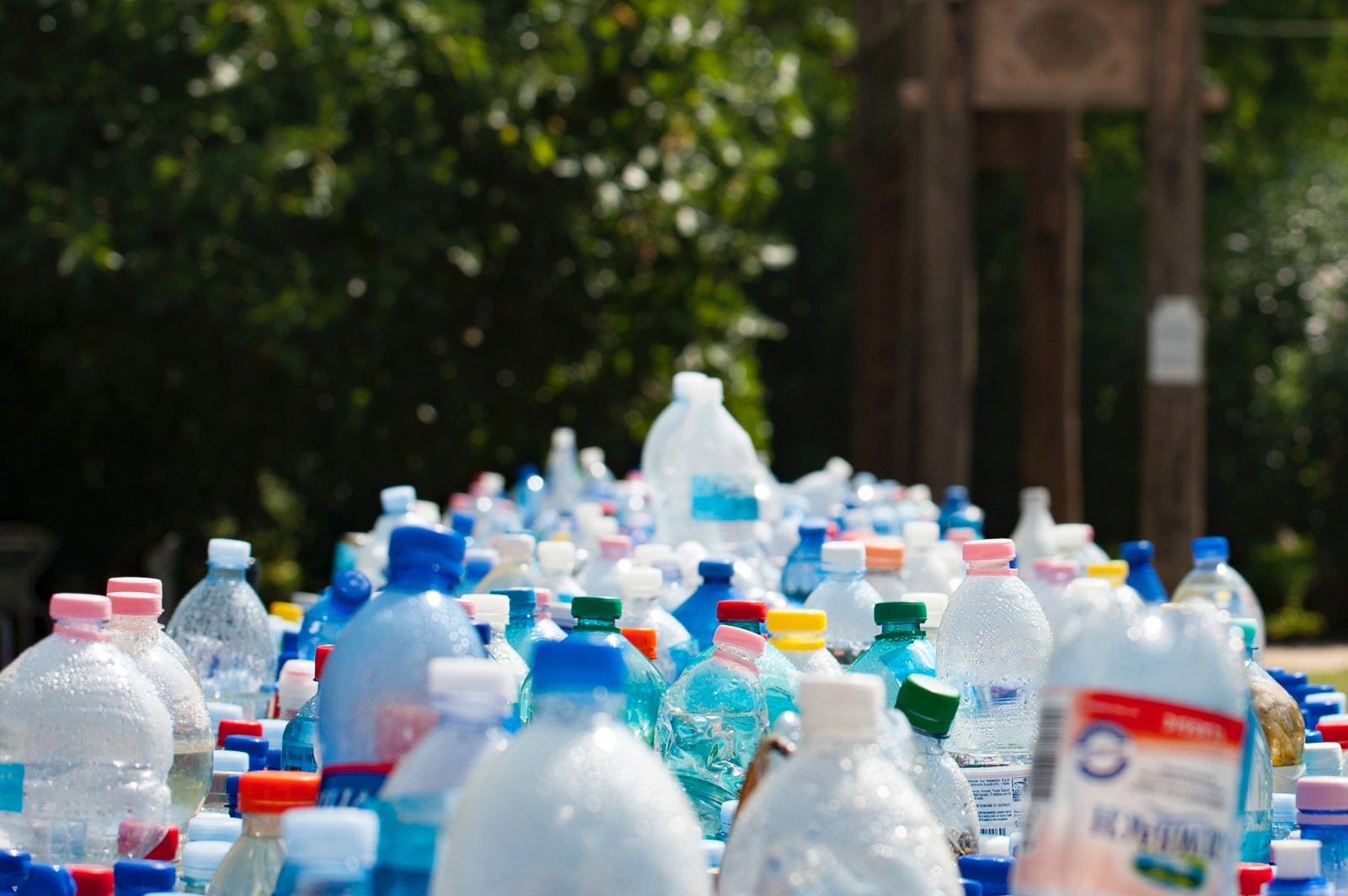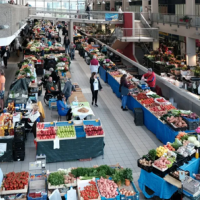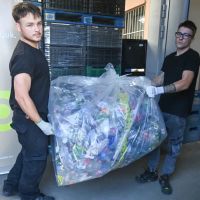Shopping and environmental awareness

Most people don't realize that their consumption choices necessarily and directly relate to the global problem of the growing mountains of waste.It is good to know that half of the household waste (yearly 200 kg per capita) is packaging waste.
How is it possible? The answer is simple. Most products are covered with an enormous quantity of excess packaging which is thrown away almost immediately after purchase. The tooth paste is sold in a tube and packed in a card box and plastic foil. Bonbons are hidden in glistening papers, bubbly plastic and miles of ribbons. Each slice of cheese is wrapped in plastic film on both sides. Fruit is sold either on plastic-foam plates wrapped in film or in plastic bags with price stickers.
This over- packaging serves one single purpose: to make the product marketable. The more colourful and promising the appearance of the product, the more desirable for the consumer who makes his choice based on looks and brandname rather than real content.
The packaging is nice, that is for sure - but is it really good? There are two different problems we have to face. One is the increasing quantity of household waste which makes the global waste problem even worse. The other is that the consumer pays twice for the packaging: first he buys it in the shop, then he pays for waste transportation. It is well-known how much the latter costs - but how much does the packaging cost?
Some examples of packaging of drinks:
- Tins of 0,33 dl: 35-40 Ft
- Plastic bottles of 0,5 l: 25-29 Ft
- Plastic bottles of 2 l: 42-48 Ft
- Card/metal (combined) boxes of 1 l: 15-20 Ft
The prettier and better the packaging the more expensive its production - and the expenses are included in the price of the product and passed on to the consumer. Purchasing "over-packed" products is not economic either for the consumer or for the environment. If we want to change this situation we don't have to do anything other than think when we do our shopping.
Suggestions for shopping
The plastic bag available at the cash desk can be replaced by our own basket or folding textile bag.
Avoid buying over-packed products. There is usually a wide selection of goods in the shops, so it is possible to find one with less packaging. Toothpaste is available without card box and foil, fruit without plastic bags etc. In some western countries it is quite common that the consumer takes his or her own containers to the shop for cold meat, cheese, cakes and salads, and overjumps commercial packaging.
You can choose! There are always packaging options which are less damaging to the environment.
- Soap wrapped in paper rather than a plastic container with dosing device,
- Honey, ketchup in bottles rather than in plastic containers;
- Sugar in paper bags rather than in plastic bags,
- Cream in plastic bags rather than aerosol spray.
Do not buy products with combined packaging (plastic/aluminium/card boxes for fruit drinks and milk). It is made of more than one material and there is no technology available to recycle it.
You can purchase less packaging if you go shopping to the market or directly to the producer/farmer. Even if they offer a bag or paper as packaging, you have the chance to refuse it politely.
It is also a good solution if you buy the product in returnable or reusable packaging.
If you opt for lasting products which can be repaired, you do not need to throw them away so often.
There are some product categories with both throw away and lasting versions (e.g. razors). It is better to choose the latter. Throw away products might appear practical but using them is a waste of source materials and producing extra waste.
Try to buy products in a kind of packaging which can be recycled (glass, paper, card). These can be reused at industrial level.
Be careful with prize-winning games. They are usually connected to soft drinks and encourage consumers to collect more and more series of caps. Yet they are mostly on products in throw away plastic containers so they increase waste production. Actually the prize you can win is always worth less than you have paid for it by consuming the drinks.
***************************
Shoppig bag
 |
Waste Management Working Group has prepared a shopping bag for you. You can read 10 suggestions on the bag which might help you how you can take less packaging waste to your home and what an environmentally aware consumer should pay attention to. |






